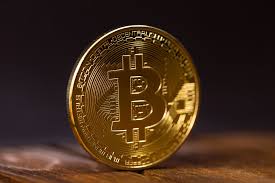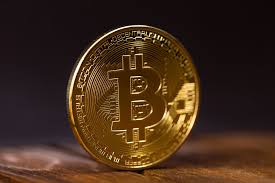
A request to list what would have been the first U.S. exchange-traded fund built to track bitcoin, the digital currency, was rejected by the U.S. Securities and Exchange Commission on Friday.
For more than three years, efforts to convince the SEC to let it bring the Bitcoin ETF to market had been undertaken by investors Cameron and Tyler Winklevoss. Application to list the ETF had been made by CBOE Holdings Inc's Bats exchange.
Losing some 18 percent in trading immediately after the decision, the digital currency's price plunged. It later recovered from the lows.
As investors speculated that an ETF holding the digital currency could woo more people into buying the asset, bitcoin had scaled to a record of nearly $1,300 this month, higher than the price of an ounce of gold.
Without the need for a central authority, such as a bank or government, bitcoin is a virtual currency that can be used to move money around the world quickly and with relative anonymity.
Yet the lack of consistent treatment of the assets by governments and a number of massive cybersecurity breaches affecting bitcoin owners are some of the new set of risks that are also presented by bitcoin.
"Based on the record before it, the Commission believes that the significant markets for bitcoin are unregulated," the SEC said in a statement posted online. "The Commission notes that bitcoin is still in the relatively early stages of its development and that, over time, regulated bitcoin-related markets of significant size may develop."
According to a financial industry source familiar with the SEC's thinking, the regulators have questions and concerns about whether they could be priced and trade effectively and how the funds would work.
"We remain optimistic and committed to bringing COIN to market, and look forward to continuing to work with the SEC staff," said Tyler Winklevoss, CFO of Digital Asset Services.
"We began this journey almost four years ago, and are determined to see it through. We agree with the SEC that regulation and oversight are important to the health of any marketplace and the safety of all investors."
On the issue of whether Facebook founder Mark Zuckerberg stole the idea for what became the world's most popular social networking website from them, the Winklevoss twins are best known for their feud with Mark Zuckerberg.
This digital currency relies on "mining" computers that validate blocks of transactions by competing to solve mathematical puzzles and since then they have become major investors in the digital currency. New bitcoins are rewarded to the first to solve the puzzle and clear the transaction. Roughly every 10 minutes, solutions to the puzzle come.
Awaiting a verdict from the SEC are two other bitcoin ETF applications. An application last year was filed by Grayscale Investments LLC's Bitcoin Investment Trust, backed by early bitcoin advocate Barry Silbert.
ETF application last year was also filed by SolidX Partners Inc, a U.S. technology company that provides blockchain services.
(Sourc:www.cnbc.com)
For more than three years, efforts to convince the SEC to let it bring the Bitcoin ETF to market had been undertaken by investors Cameron and Tyler Winklevoss. Application to list the ETF had been made by CBOE Holdings Inc's Bats exchange.
Losing some 18 percent in trading immediately after the decision, the digital currency's price plunged. It later recovered from the lows.
As investors speculated that an ETF holding the digital currency could woo more people into buying the asset, bitcoin had scaled to a record of nearly $1,300 this month, higher than the price of an ounce of gold.
Without the need for a central authority, such as a bank or government, bitcoin is a virtual currency that can be used to move money around the world quickly and with relative anonymity.
Yet the lack of consistent treatment of the assets by governments and a number of massive cybersecurity breaches affecting bitcoin owners are some of the new set of risks that are also presented by bitcoin.
"Based on the record before it, the Commission believes that the significant markets for bitcoin are unregulated," the SEC said in a statement posted online. "The Commission notes that bitcoin is still in the relatively early stages of its development and that, over time, regulated bitcoin-related markets of significant size may develop."
According to a financial industry source familiar with the SEC's thinking, the regulators have questions and concerns about whether they could be priced and trade effectively and how the funds would work.
"We remain optimistic and committed to bringing COIN to market, and look forward to continuing to work with the SEC staff," said Tyler Winklevoss, CFO of Digital Asset Services.
"We began this journey almost four years ago, and are determined to see it through. We agree with the SEC that regulation and oversight are important to the health of any marketplace and the safety of all investors."
On the issue of whether Facebook founder Mark Zuckerberg stole the idea for what became the world's most popular social networking website from them, the Winklevoss twins are best known for their feud with Mark Zuckerberg.
This digital currency relies on "mining" computers that validate blocks of transactions by competing to solve mathematical puzzles and since then they have become major investors in the digital currency. New bitcoins are rewarded to the first to solve the puzzle and clear the transaction. Roughly every 10 minutes, solutions to the puzzle come.
Awaiting a verdict from the SEC are two other bitcoin ETF applications. An application last year was filed by Grayscale Investments LLC's Bitcoin Investment Trust, backed by early bitcoin advocate Barry Silbert.
ETF application last year was also filed by SolidX Partners Inc, a U.S. technology company that provides blockchain services.
(Sourc:www.cnbc.com)





